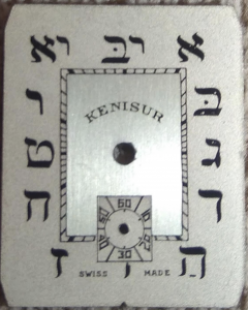“The Bibliography of the Hebrew Book includes the national bibliography of the Jewish people; and detailed description of all Jewish literature printed in Hebrew characters, for all types and in all languages. The Bibliography includes most of the books, pamphlets and magazines printed in Hebrew, Yiddish, Ladino, Judeo-Arabic, and other Jewish languages, found in collections in Israel and abroad, starting from the beginning of Hebrew printing (or so in 1460) through 1960.” [(from the website of the National Library of Israel)]
Processing the data of the BHB (Bibliography of the Hebrew Book) in the framework of DiJeSt project, in combination with the use of the Hebrew Gazetteer Kima, provides a different view on the spatial history of books written in the Hebrew script from 15th century to 1950.
(UPDATE! *** since 2019, the year of the DiJeSt project, the platform we used lifted a paywall that we could not support. In 2023 we moved the data visualization and access to Google Looker-studio, where it can now be explored:
The Bibliography of the Hebrew book, Visualized
What’s a nice Jewish book doing in the west pacific ocean? and what are the Hebrew books that were published in Harbin, Tianjin and Shanghai? (zoom the map to the western pacific and click the dots to find out!); What is the most frequent title printed in Ladino before 1800, and where was it published, compared to the most common title of the 19th century and its center of printing? (use the time line slider to focus on the relevant period and click ‘ladino’ in the language facet on the right, then look at the title fact above it.
CAVEAT!
Like the entire DiJeSt dataset, this view is limited and you should use it with caution. Before drawing any conclusions from it, remember:
- Data is always “Capta”: it is assembled by people in specific circumstances, with specific motivations and assumptions.
- The Bibliography of the Hebrew Book is not ALL books ever published, even if it strived to do so. Many books simply did not survive to be documented, and some may have not been deemed relevant, according to the criteria used by the curators.
- Our processing and cleaning of the data is work in progress and will probably always remain so: many of items were not yet reconciled (visit Github if you would like to help!)
- we welcome any corrections and comments, and hope we can address them soon.
